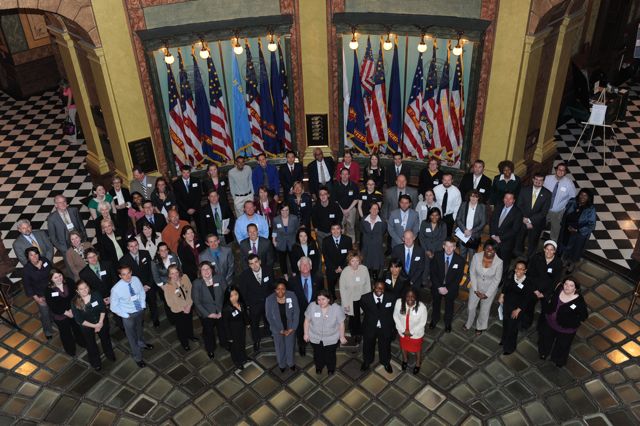The National Research Council (NRC) of the National Academies has released a comparison of more than 5,000 doctoral programs at 212 universities across the nation, including Michigan Tech.
The assessment–seven years in the making–rated 12 PhD programs at Michigan Tech, giving highest marks to two in SFRES: forest molecular genetics and biotechnology, and forest science.
Other noteworthy Tech programs included chemical engineering, chemistry, environmental engineering, mathematical sciences, materials science and engineering and mechanical engineering-engineering mechanics.
“The NRC used a complex and very sophisticated statistical analysis procedure to attempt to objectively compare similar PhD programs,” said David Reed, vice president for research. “I’m very pleased that our programs in forestry–and in some of the engineering and science specialties–came out so well. It speaks very highly of the faculty and students involved.”
Although the results of the NRC study were described as “rankings,” graduate programs at different universities weren’t actually ranked or compared directly one to another. Rather, using a complicated statistical analysis of 21 variables and two sets of data, the programs were assigned “ranges.”
Both data sets were based on results of faculty surveys. In one survey, faculty members were asked what factors were most important to the overall quality of a graduate program. In the other, they were asked to rate the quality of a sample of programs in their field.
The results, which took several years to analyze, show the number of programs evaluated in each field and the range in which Tech’s programs fall. In forest science, for example, 34 programs were compared, and Michigan Tech’s were ranked between 2nd of 34 and 23rd of 34.
“The results are not rankings,” said Jacqueline Huntoon, dean of the Graduate School. “The report tells us that there is a 90 percent chance that the ‘true’ ranking of each of our programs falls somewhere within the reported range.”
“The results do have some interesting implications,” Huntoon went on to say. “We found out what is most important to a good reputation–the number of PhDs graduated, the number of publications of the faculty, and the research awards received by faculty. The results clearly show that the reputation of a graduate program depends on its size.”
“That validates the direction in which Michigan Tech has been moving–making a conscious effort to grow its Graduate School programs,” Huntoon added.
She expressed concern that the NRC data is out of date. It was collected in 2006-07 and included data from 2001-02 to 2005-06.
“We aren’t the same university or the same graduate school we were then,” Huntoon noted. “In 2005, we only had 870 graduate students. Now we have 1,241. We have made a major commitment to growing our graduate school.” The new data will be useful as a benchmark to measure future progress at Michigan Tech, she said.
The last NRC graduate program assessment was conducted in 1995. It evaluated only three PhD programs at Michigan Tech: geosciences, mechanical engineering and physics.
by Jennifer Donovan, director of public relations
Published in Tech Today

